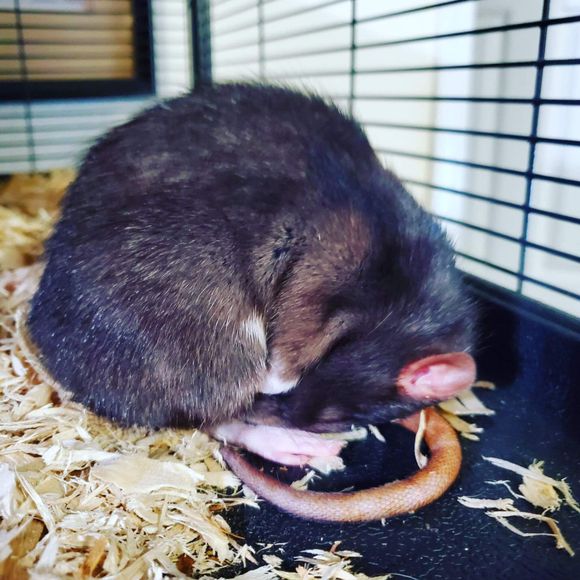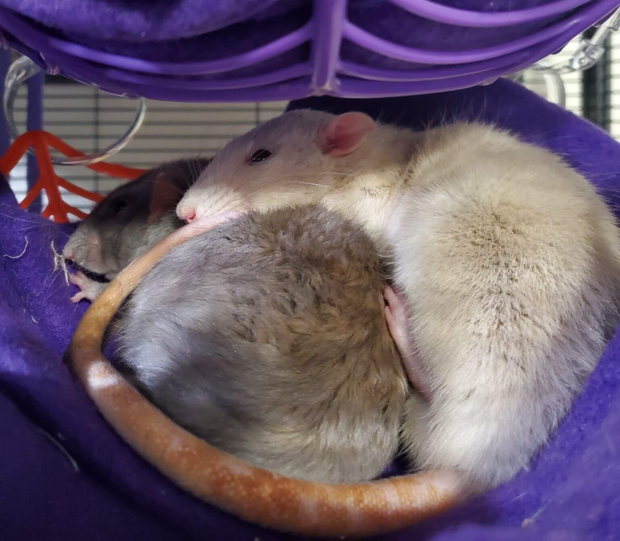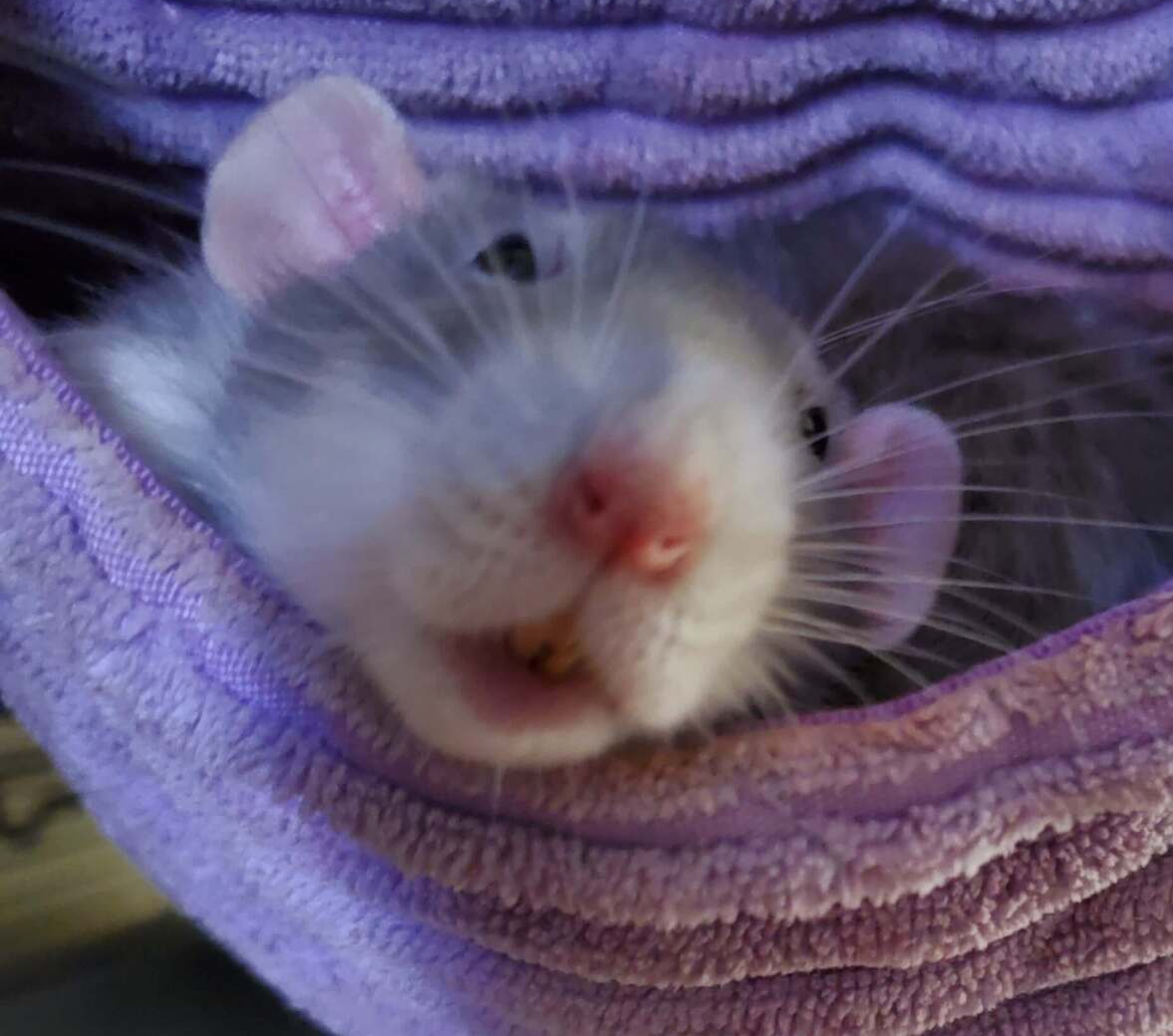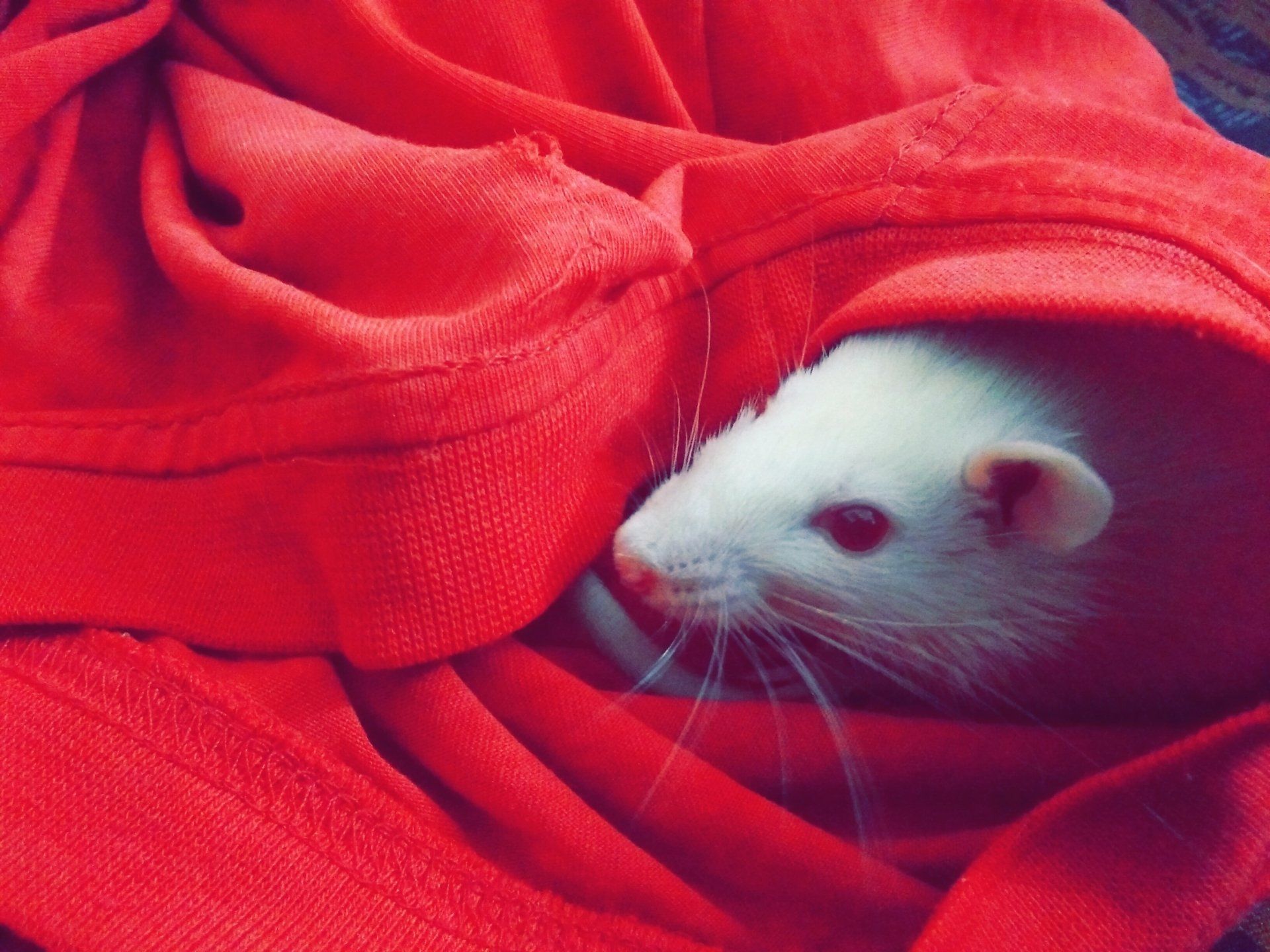Why Is My Pet Rat Always Asleep? - Sleep Habits of Rats
This post contains affiliate links and I will be compensated if you make a purchase after clicking on my links.
Why Is My Pet Rat Always Asleep? - Sleep Habits of Rats
While your mom may have yelled at you when you were a teenager for staying up all night and sleeping until noon, for rats that behavior is common! Learn all about the sleep habits of rats, and why they always seem to be snoozing during the time humans are most active.
All rats, including domestic rats, are nocturnal. This means they sleep most of the day and wake up towards the evening, which begins the time when they're most active. Rats also require a lot of sleep and can sleep up to 15 hours each day.
So while it may seem like your pet rats are never awake when you are, don’t worry, they’re just on a different time schedule!
Why Rats Sleep During The Day
Rats, being nocturnal, sleep a lot during the day. But why? You would think being a domesticated animal they would realize they were safe and be awake at the same times we are.
However, they are not that far removed from their wild cousin. To protect themselves, wild rats sleep in a safe space during the day and are awake at night, when the darkness can help camouflage them.
Because they have poor eyesight, they rely mostly on hearing and smell, as well as feeling with their whiskers, to get around. This means the darkness doesn’t affect them very much, but it makes it a lot harder for predators to spot them.
Even though our domesticated fancy rats don’t have any wild predators to worry about, they still have the same sleep rhythm as their descendants and snooze a lot during the day.
Domesticated rats are actually not fully nocturnal, but rather crepuscular.
Crepuscular animals are active during the twilight hours, instead of waiting until full night. My rats start to wake up around when we have dinner (though that may be for a different reason than the time)!
After this time and into the night, rats are much more active. Because of this, they will make significantly more noise during the night (when we sleep). If you are a light sleeper, invest in earplugs or move the cage to a location other than your bedroom to ensure a good night’s rest, especially if you have very playful rats!
If it seems like your rat is always sleeping, it is because of not only the time of day they naturally sleep, but the amount of sleep they need. Rats can sleep up to 15 hours in a day!
Why Rats Need So Much Sleep
15 hours a day is a long time to be asleep. When you do the math, that means rats are only awake for 9 hours out of the day!
Why do they need to spend more than half the day asleep? Because rats have a smaller body size and metabolic rate than humans, they require a lot more sleep to repair.
A study was done measuring the percentage of the day lab rats were asleep, measuring a 12 hour period from 8 am to 8 pm. The results came to the rats spending 76% of the day sleeping!
But they don’t sleep straight through the 14-15 hours. You may notice your rat will be knocked out in a deep sleep for a few hours, and then is suddenly zipping around the cage, eating a bit, then snuggling up with their cagemates for another nap.
Sometimes it can seem like our rats aren’t sleeping that much because we look in the cage and they have their eyes open.
Fun fact: Rats can sleep with one or both eyes open!
One of our rats, Jinx, loves to sleep with her eyes open in a dark part of the cage, and has tricked me into thinking she’s awake more than once!
How To Help Your Rat Sleep
So now that we know our rats’ sleep schedules, how do we help them and enable them to have the best sleep?
If you work away from home, this is easy, as your rats are left alone during the daytime to get their 4 hour naps, play, eat, groom, and nap again. If you work from home, like us, this can be harder.
Finding a quiet place for the cage during the day, away from activity, is an option. We actually have our rats’ cage in our office, but our rats are used to our activity and sleep right through it. Some rats will, some won’t, so be sure to monitor your rats!
Also, it’s a lot easier to sleep when it’s darker, so if you can’t keep them in a darker room, give them lots of hideaways that allow them to get some sleep out of the light.
Draping the cage like you might do for a bird does not work. Rats are notorious chewers and will pull whatever they can reach into their cage.
Before putting more places for them to hide in the cage, we tried to put a towel over the top of the cage, but this resulted in them getting very excited, pulling the towel partway into the cage, and destroying it.
The best way to go about this is giving them lots of places to sleep! While rats will sleep more out in the open when it’s warmer out, they love snuggling together in hammocks and hideaways. Boxes and baskets also work for good sleep spots!
And as always, the reminder that rats can’t be alone!
A lone rat may sleep more than average. This is not good, but a sign of depression and boredom! Make sure your rat has at least one sleeping buddy, and they will be much happier.
How To Interact With Your Sleepy Rat
It can be very hard not to wake our rats up when they’re sleeping. In my opinion, they’re never cuter than when they’re curled up in their hammock with their little mouth drooped open!
But don’t worry, your rat will learn your schedule, and accommodate to it. Remember, rats sleep for about 4 hours at a time at most, and then wake for a bit.
For instance, Buttons knows exactly when I go on lunch, and she is almost always standing at the door of their cage, staring at me, waiting to come out of the cage and play.
Rats are social animals and like to interact with their humans! Like Buttons (our social butterfly), your rats will adapt somewhat to your schedule and always make themselves available for scratches and treats throughout the day.
Side note: Make sure your rat is actually awake before reaching for them. As stated before, rats can sleep with their eyes open, so it isn’t always easy to tell.
Startling a rat when it’s in the middle of a deep sleep could cause them to bite in defense, even if they are a friendly rat. It is best to speak to them and maybe touch the hammock or hideaway they are in to see if you get a reaction before reaching in.
If they are in the middle of a rest cycle, it is best to let them finish their sleep rather than waking them so you can take them out. They need their sleep just like we do, imagine if someone poked you awake at 3 AM!
That being said, since they don’t sleep in very long spurts, you won’t likely have to wait long before one or more of your rats are up and ready to play!
Because they are crepuscular, rats will wake up closer to the evening and be much more active after that point. This is a great time to play and interact with them.
This is also the best time to feed them as well, as you won’t be interrupting their sleep pattern with an offering of new food (and believe me, they will almost always wake up for food)!
Final Thoughts
It can sometimes seem like our rats sleep a lot (and they do)! It’s good to know that though our rats’ sleep cycles are different than ours, they are completely normal and will adjust slightly to our patterns of life. The important thing is that our rats get plenty of sleep so they can stay happy and healthy!
Do you have extraordinarily sleepy rats, or do they seem to always be up when you are? Share below!






